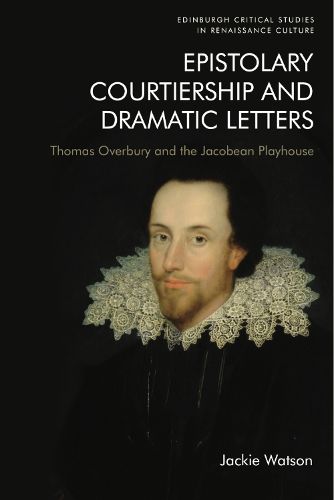Readings Newsletter
Become a Readings Member to make your shopping experience even easier.
Sign in or sign up for free!
You’re not far away from qualifying for FREE standard shipping within Australia
You’ve qualified for FREE standard shipping within Australia
The cart is loading…






Through an analysis of the career of the eminent courtier Sir Thomas Overbury, Epistolary Courtiership and Dramatic Letters re-examines what is meant by courtiership in the Jacobean period. With a particular focus on the years between 1609 and 1613, the book brings together many of the letters surrounding the scandal leading to Overbury's murder and provides an examination of epistolarity in the context of humanist and legal learning. Defining key themes of social mobility, homosociality and the legal power of James VI and I, it exposes the mechanisms by which men rose at his court and provides a context for a new reading of contemporary dramatic texts by Shakespeare, Webster and Chapman. The book argues that the changing performance of courtiership at James's court, the wider knowledge of that reflected in contemporary letters and consequently shifting attitudes, all alter the performance of courtiership in the playhouse.
$9.00 standard shipping within Australia
FREE standard shipping within Australia for orders over $100.00
Express & International shipping calculated at checkout
Through an analysis of the career of the eminent courtier Sir Thomas Overbury, Epistolary Courtiership and Dramatic Letters re-examines what is meant by courtiership in the Jacobean period. With a particular focus on the years between 1609 and 1613, the book brings together many of the letters surrounding the scandal leading to Overbury's murder and provides an examination of epistolarity in the context of humanist and legal learning. Defining key themes of social mobility, homosociality and the legal power of James VI and I, it exposes the mechanisms by which men rose at his court and provides a context for a new reading of contemporary dramatic texts by Shakespeare, Webster and Chapman. The book argues that the changing performance of courtiership at James's court, the wider knowledge of that reflected in contemporary letters and consequently shifting attitudes, all alter the performance of courtiership in the playhouse.